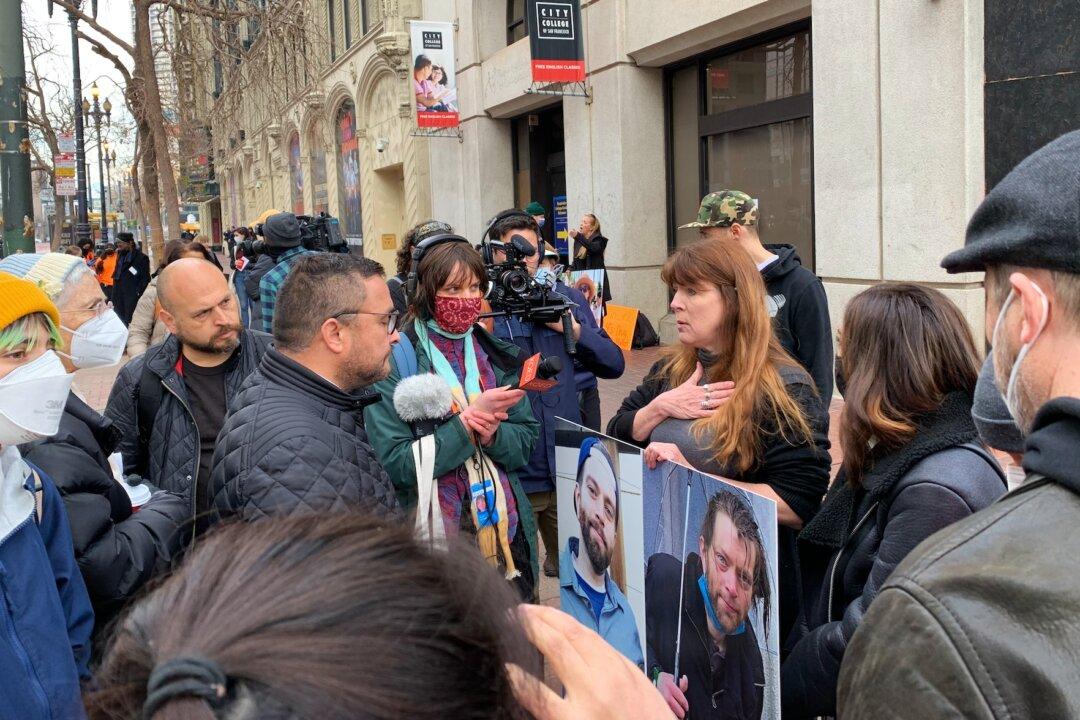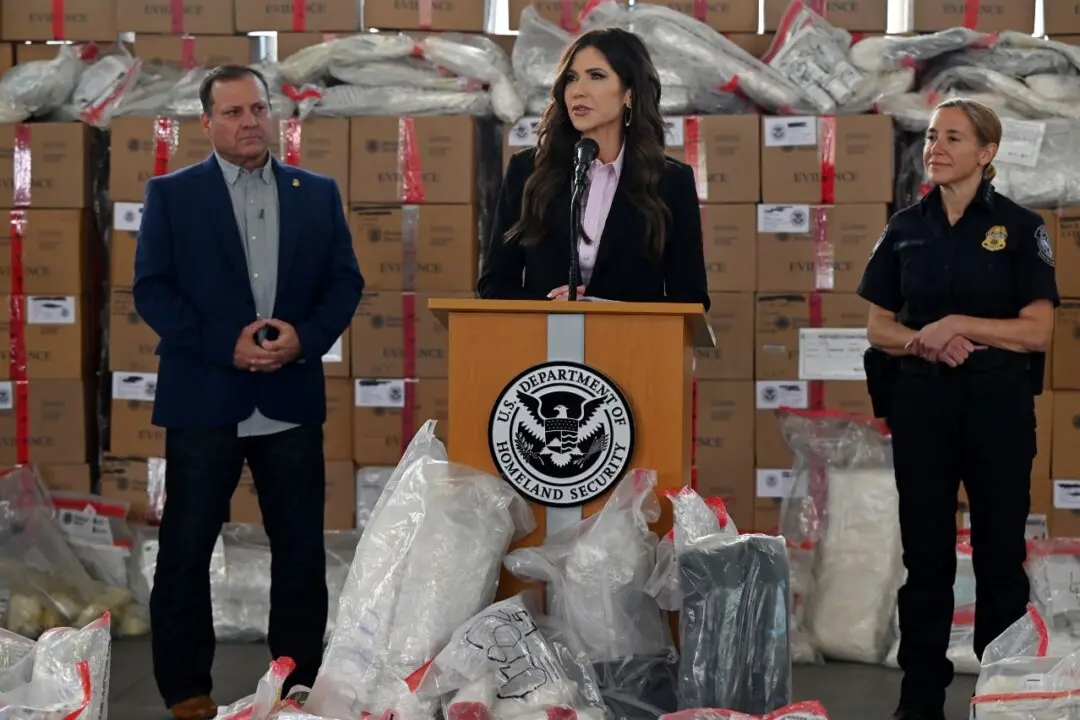A California mom whose fentanyl-addicted son is living on the streets of San Francisco is calling on Gov. Gavin Newsom to veto legislation that would allow the creation of supervised drug consumption sites in Los Angeles and San Francisco counties, as well as the city of Oakland.
“It’s insanity. It’s normalizing drug use,” Jacqui Berlinn, co-founder of the California-based organization Mothers Against Drug Deaths, told The Epoch Times. “Nearly everything has fentanyl in it, and to open drug dens that are going to allow people to use fentanyl is literally a death sentence to my son and to others. There’s no safe way to use fentanyl.”





